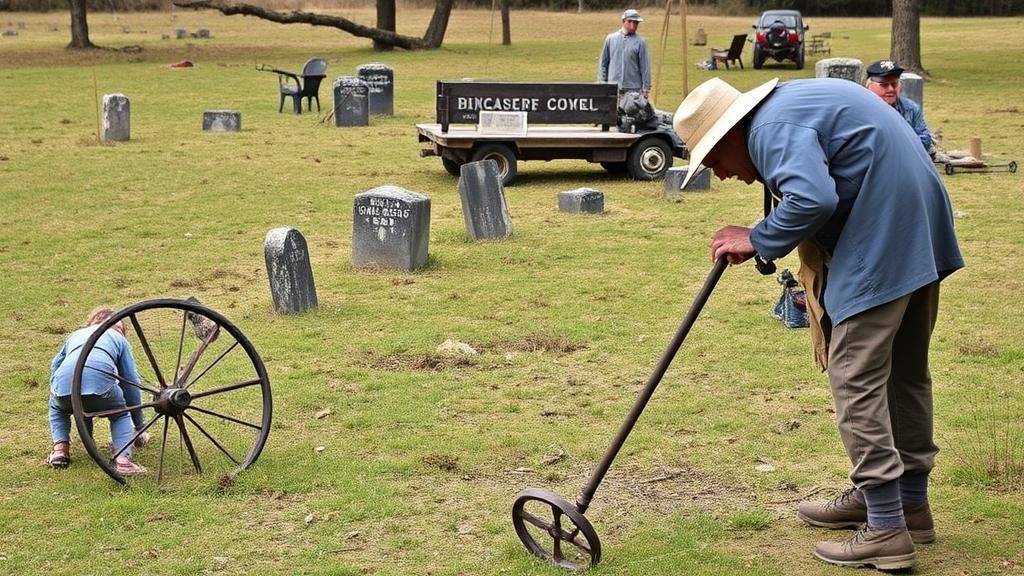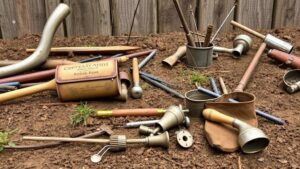Metal Detecting on Historic Battlefields: Laws, Ethics, and Best Practices
Metal Detecting on Historic Battlefields: Laws, Ethics, and Best Practices
Metal detecting can be an exciting hobby and a means of uncovering history, especially on historic battlefields. But, it carries significant responsibilities in terms of legal compliance, ethical considerations, and best practices. This article aims to provide a comprehensive guide for metal detecting enthusiasts regarding the nuances of their activity in sensitive environments such as battlefields.
Laws Governing Metal Detecting
The legal landscape surrounding metal detecting varies widely depending on location. In many countries, laws dictate how and where metal detectors can be used, especially on historic sites. It is crucial for enthusiasts to familiarize themselves with these regulations before embarking on a detecting venture.
Local and National Legislation
In the United States, federal laws, state statutes, and local ordinances all play a role in regulating metal detecting:
- Federal Laws: The Archaeological Resources Protection Act (ARPA) prohibits the unauthorized excavation or removal of archaeological resources from federal lands. It establishes fines and potential imprisonment for violations.
- State Laws: Some states have specific laws regarding metal detecting on state-owned properties. For example, California requires a permit for metal detecting in state parks, while Florida has no such requirement.
- Local Regulations: Many localities have specific rules prohibiting metal detecting in certain parks or public areas. For example, New York City prohibits metal detecting in its parks altogether.
Its essential to consult local guidelines and laws before detecting in any area, especially historic battlefields where artifacts can be both invaluable and culturally significant.
International Considerations
For those interested in detecting outside the United States, similar laws apply. The United Kingdom, for example, has the Treasure Act 1996, which mandates that any found treasure must be reported to the local authorities. Not adhering to these laws can result in hefty fines or confiscation of items deemed archaeological relics.
Ethics in Metal Detecting
Ethical practice is as crucial as legal compliance in metal detecting. Enthusiasts must be aware of the responsibility to respect both the history of the site and the culture that surrounds it.
Respecting Cultural Heritage
When detecting in historic battlefields, it is vital to engage in practices that honor the past:
- Leave No Trace: Fill in all holes, remove litter, and leave the site as you found it, if not better.
- Report Findings: Artifacts found should be reported to local authorities, preservation societies, or museums, which may assist in further historical research.
Failing to respect these ethical obligations can lead to the degradation of historic sites and result in a loss of significant cultural narratives.
Engagement with Archaeologists
Collaborating with archaeologists and historians can enhance the metal detecting experience. For example, many archaeological programs welcome volunteer metal detectors to help locate artifacts at sites where formal digs are underway. This collaboration can enable hobbyists to learn about the importance of their finds and contribute positively to the field.
Best Practices for Metal Detecting on Battlefields
To ensure a responsible and fulfilling metal detecting experience, hobbyists should follow several best practices.
Preparation and Equipment
Before heading out to a battlefield, proper preparation is key:
- Research: Study the battlefields history, layout, and previous excavations to understand potential hotspots for finds.
- Equipment: Use a quality metal detector appropriate for the environment, and carry tools for digging, cleaning, and a container for finds.
Engagement with the Community
Being part of a metal detecting community can provide valuable insights and experiences:
- Join Clubs: Local metal detecting clubs often host events, share knowledge, and advocate for the hobby.
- Attend Workshops: Participate in workshops on responsible detecting and archaeology to further enhance your understanding of best practices.
Conclusion
Metal detecting on historic battlefields offers not only the thrill of discovery but also the significant responsibility of preserving history. Adhering to legal regulations, practicing ethical detection, and employing best practices ensures that metal detectors can enjoy their hobby while honoring the valuable history of the sites they explore. Engaging with local communities and experts enriches the experience and cultivates respect for our shared heritage.
To get started, always conduct thorough research, obtain necessary permissions, and maintain ethical collecting practices. In doing so, metal detectors can contribute positively to the preservation of history while enjoying their rewarding pastime.



